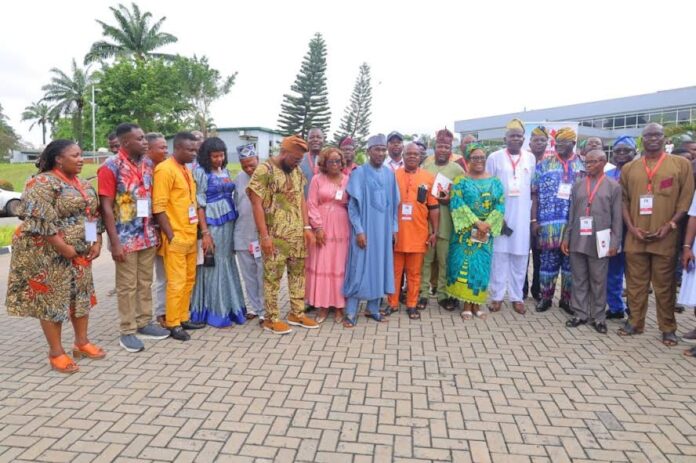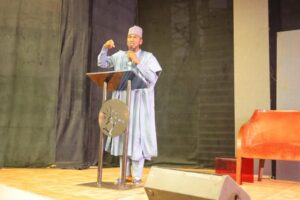

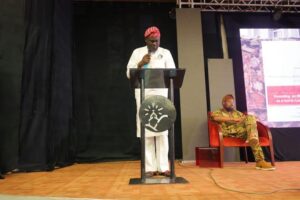


The Economic and Financial Crimes Commission, EFCC, has charged Designated Non-Financial Businesses and Professions (DNFBPs) to strengthen internal control and ensure full compliance with anti-money laundering (AML) laws, stressing that ignorance of the law is not an excuse.

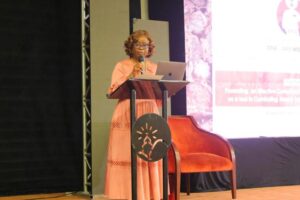
The charge was given at the maiden sensitization programme for DNFBPs in Ogun State themed “Sensitization of DNFBPs on Their Compliance Obligations in Ogun State,” organised by the EFCC’s Special Control Unit against Money Laundering (SCUML).
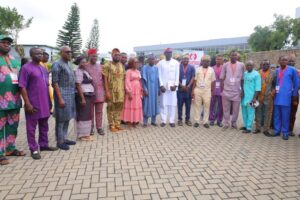
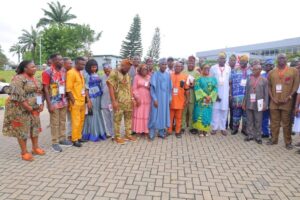
While declaring the event open, Acting Zonal Director, Lagos Directorate II of the EFCC, Assitant Commander of the EFCC, ACE I Ahmed Ghali, said the Commission’s work is anchored on two critical approaches: enforcement and prevention.
He said: “In our over 20 years of operation, the Commission has always deployed two main mechanisms in the fight against corruption and economic and financial crimes.
“The first, which you all are aware of, and which is mostly reported in the media, is the one that involves investigation and prosecution of corrupt persons.
“The second key mechanism is the prevention arm of the EFCC’s mandate, which basically involves partnerships and robust collaborations with our various critical stakeholders, in order to achieve the agenda of reducing corruption and economic and financial crimes to the barest minimum.
“Interestingly, under the current leadership of Mr. Ola Olukoyede, the Commission has intensified this mechanism more than ever before.”
Ghali also stressed that the sensitization exercise could not be more auspicious, as Nigeria accelerates efforts to exit the FATF grey list.
“We must convincingly demonstrate, through the combined efforts of government institutions, supervisory bodies, law enforcement agencies and the private sector, that we are committed to doing the right things the right way.
“Expectations are high, progress is real, and sustained commitment from all stakeholders is essential,” he said.
He further warned that the EFCC would not relent in its enforcement efforts, adding that
“Entities that repeatedly fail in registration, record-keeping, customer due diligence, or suspicious transaction reporting will be sanctioned in line with the law. Ignorance of the law is never an excuse.”
Delivering a paper on “Overview of Money Laundering and Terrorism Financing,” ACE I Ibinabo Amachree, Head, SCUML Lagos, explained the key concepts, predicate offences, stages of laundering, terrorism financing, proliferation financing, and the Nigerian AML/CFT/CPF legal framework.
She said: “The goal of laundering is to avoid prosecution, conviction, and confiscation,” she explained.
“Illicit proceeds are dirty. The process that attempts to make them appear legitimate is known as money laundering.”
Also speaking, ACE II Folasade Oluwasanya of SCUML, Lagos facilitated a technical session on reporting obligations for DNFBPs, covering Currency Transaction Reports (CTR), Suspicious Transaction Reports (STR), Politically Exposed Persons (PEP), Targeted Financial Sanctions (TFS), and implementation of the EFCC Administrative Sanctions Regime.
She emphasized the need for DNFBPs to inculcate compliance into their business culture and processes.
In his goodwill message, Ogun State Commissioner for Agriculture, Bolu Owotobo, commended the EFCC for a “timely and impactful workshop” addressing a challenge central to economic stability and national security.
“In today’s interconnected world, combating money laundering and terrorist financing must be comprehensive—even in sectors often overlooked, such as agriculture-related businesses. A culture of compliance is crucial”, he said.
In his remarks, , Ogun State Commissioner for Housing, Jagunmolu Akande represented by Kola Agemo, Senior Special Assistant to the Governor on Housing, highlighted the real estate sector’s vulnerability to illicit financial flows.
According to him, “ Criminal elements have long exploited real estate to launder funds. Regulators, developers, professionals and policymakers must work together to promote transparency, due diligence and strict adherence to AML regulations.
He also reaffirmed the State’s commitment to closing gaps that enable illegal financial flows.
The event enjoyed support from the Ogun State Government, with the Ministries of Agriculture, Housing, and Culture & Tourism pledging continued collaboration to strengthen compliance across their sectors, as well strong support and participation from major Self-Regulatory Organisations (SROs), including the Real Estate Developers Association of Nigeria (REDAN), National Association of Nigerian Travel Agencies (NANTA), National Hoteliers Association, and the Federal Ministry of Solid Minerals, underscoring the importance of multi-sector collaboration in strengthening Nigeria’s AML/CFT regime.
Dr. Adeyemi Adeniyi, Chairman, REDAN (Ogun State), assured the EFCC of continued partnership and cooperation from the industry.
The event, held in Abeokuta, recorded an impressive turnout of stakeholders across multiple sectors, reflecting growing awareness and commitment to Nigeria’s AML/CFT/CPF agenda.
Dele Oyewale
Head, Media & Publicity
October 17, 2025

